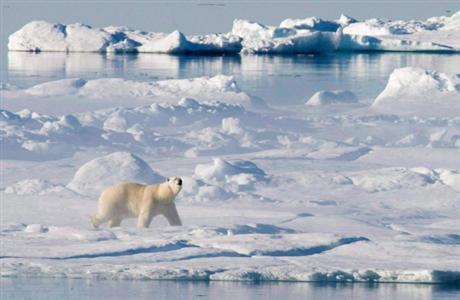A Canadian nautical map charts the Canadian coastline in Nares Straight which separates Ellesmere Island with Greenland. The old Soviet Union may have been just as familiar with Canada’s Arctic waters as Canadians. Sections of Cold-War-era nautical charts obtained by The Canadian Press suggest that Russian mariners have for decades possessed detailed and accurate knowledge of crucial internal waterways such as the Northwest Passage. Canada is to file a claim to expand its Arctic seafloor boundaries this week.
Canada has previously released maps on the likely boundaries of its claim. Russia filed its claim in 2002 and Denmark released its last week.
The U.S. has not signed the convention, but has agreed to follow most of its articles. Its boundary dispute with Canada involves the exclusive economic zone and doesn’t directly impact Friday’s claim.
Conflicts are likely to be few. One calculation puts the amount of overlap between claims at a mere 75,000 square kilometres out of millions and millions.
Rob Huebert, an Arctic expert at the University of Calgary, will be watching to see if Canada stretches its claim past the North Pole. The geologic justification – an undersea mountain range called the Lomonosov Ridge that stretches north from Ellesmere Island – is there, he said.
“I don’t think there’s something magical that stops (the claim) at the North Pole,” he said.
Canadian officials have acknowledged mapping flights over the top of the world and into Russia’s claim, which does stop at the pole.
But Byers said there’s no evidence that Canada has collected the kind of data it would need to challenge Russia.
“We may have some small overlaps in the middle, but for the most part there will not be any overlap between the Russian submission on the one side and the Canadian and Danish submissions on the other,” he said.
It all depends on how valuable Canadian officials think that real estate is, said Huebert.
“Maybe it’s simply not worth it. Maybe we said, ‘You know what, for the sake of international peace and stability, it’s not important. We’ll only do our science up to that and that will be the basis of our claim.’ “(But) it means we didn’t go as far as we could.”
Whether or not Canada will claim the North Pole, a decision on its fate is still probably 20 years off. Just checking the science on Canada’s claim will likely take five years, said Huebert.
And there isn’t any particular rush, said Byers. These claims cover some of the remotest and harshest points on the planet and commercial exploitation of resources is a long ways off.
But just getting to the point where countries have filed claims is a triumph, he said.
“In this former Cold War frontier we have an agreed set of rules. That has a huge payoff.”
THE CANADIAN PRESS
 Canada Journal – News of the World Articles and videos to bring you the biggest Canadian news stories from across the country every day
Canada Journal – News of the World Articles and videos to bring you the biggest Canadian news stories from across the country every day



